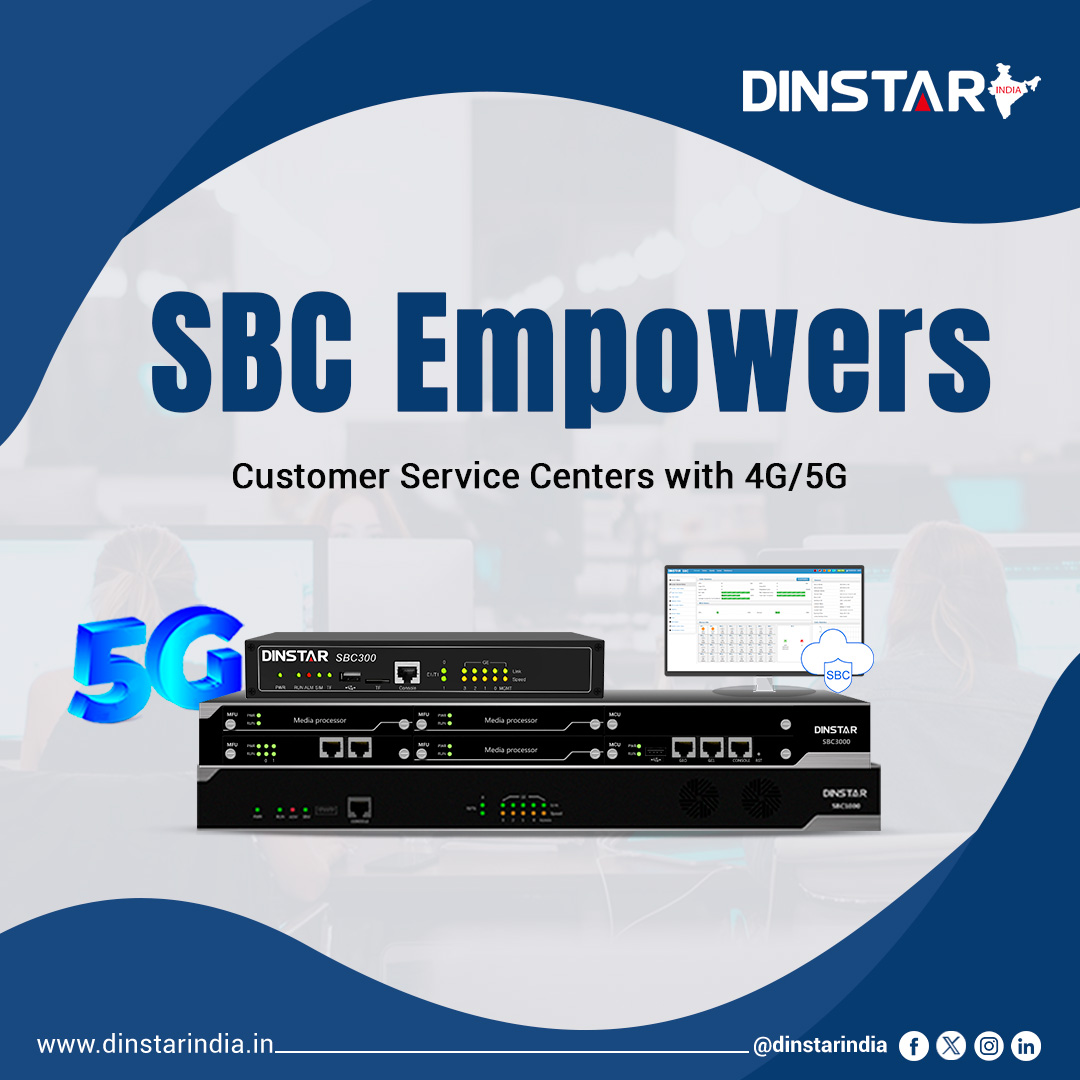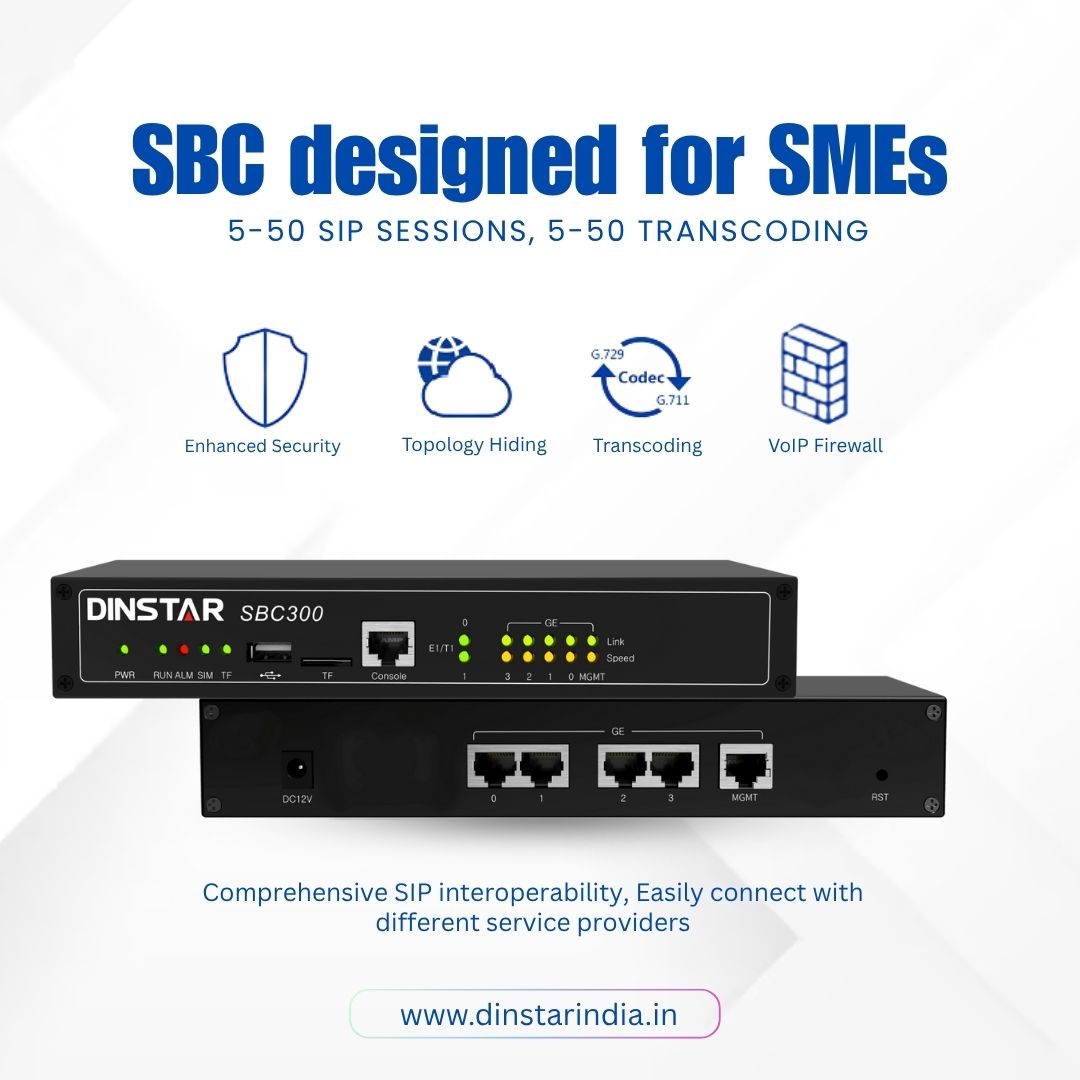What is an SBC and Why It’s Crucial in Modern VoIP Networks

Strong 8k brings an ultra-HD IPTV experience to your living room and your pocket.
In today's digital communication ecosystem, ensuring secure and seamless voice and video transmission over IP networks has become a top priority. Whether it's a service provider managing large-scale networks or enterprises maintaining internal VoIP systems, protecting and managing these communications is critical. This is where the Session Border Controller, or SBC, plays a pivotal role.
An SBC is a network element that governs the way voice and video calls are initiated, conducted, and terminated across different networks. Acting as a gatekeeper for real-time communication, an SBC ensures quality, security, interoperability, and compliance. Understanding the role of an SBC, how it works, and why businesses are turning to reliable SBC providers is essential in today’s VoIP-driven world.
Understanding Session Border Controllers
A Session Border Controller functions at the border between two networks, typically between an enterprise network and a service provider network. It controls signaling and media streams during a communication session, providing a set of features designed to manage the call flow effectively and securely.
Think of the Service Border Controller as a digital bouncer—it checks credentials, ensures only authorized traffic passes through, and blocks or mitigates threats like toll fraud, DoS attacks, and eavesdropping attempts. But an SBC does far more than just security. It also manages traffic policies, adapts incompatible protocols between different devices, and ensures high-quality service through features like transcoding and traffic prioritization.
Why Businesses Need an SBC
With the increase in SIP trunking and unified communications solutions, the need for a robust Session Border Gateway has become indispensable. Enterprises and carriers alike face challenges such as network interoperability, SIP protocol mismatches, and ensuring secure communication over public networks. The SBC addresses all these concerns efficiently.
An SBC Provider equips organizations with tools to not only protect their VoIP infrastructure but also enhance performance. Here are some reasons why investing in an SBC is essential:
1. Security and Protection
Security is the primary function of any Service Border Controller. SBCs provide robust defense mechanisms against threats including:
- SIP signaling manipulation
- Call fraud
- Denial-of-Service (DoS) and Distributed DoS (DDoS) attacks
- Unauthorized call interception
By terminating the signaling from external networks and re-originating it within the internal network, the SBC acts as a SIP firewall. It enforces access control policies and ensures encryption of media and signaling for enhanced privacy.
2. Protocol Interworking and Interoperability
VoIP devices and platforms often come with varying levels of SIP standard compliance. This can result in signaling mismatches, call failures, or feature incompatibility. A Session Border Gateway helps solve these challenges by enabling protocol normalization. It translates signaling messages to ensure that different systems can talk to each other without compatibility issues.
3. Quality of Service (QoS) Management
Ensuring a high-quality user experience is a major responsibility of an SBC. It provides features like media transcoding, jitter buffering, packet loss concealment, and prioritization of voice traffic. These features significantly enhance call clarity and reduce disruptions, which is especially critical in real-time business communications.
4. Regulatory Compliance and Call Admission Control
Many industries must comply with regulations concerning call recording, lawful intercept, or emergency calling (like E911 in the US). SBCs help organizations stay compliant by providing features that support these legal requirements. They also enable call admission control, limiting the number of concurrent calls based on bandwidth availability or licensing.
5. Seamless SIP Trunking and Cloud Communication Integration
Adopting SIP trunking or transitioning to cloud-based communication platforms like Microsoft Teams, Zoom, or Cisco Webex requires network compatibility and security. SBCs facilitate this migration by ensuring that the legacy systems and modern platforms communicate smoothly. A trusted SBC Provider offers seamless integration tools to make this transition efficient and hassle-free.
Choosing the Right SBC Provider
When selecting an SBC Provider, businesses should evaluate both the technical capabilities of the SBC and the reliability of the provider itself. A good SBC solution should be scalable, secure, and flexible enough to adapt to changing network environments. Key factors to consider include:
- Support for high call volumes and future scalability
- Advanced security features like TLS, SRTP, and encryption
- Interoperability with a wide range of VoIP platforms and carriers
- Detailed analytics and monitoring tools
- Redundancy and high availability features
Additionally, working with an experienced SBC Provider ensures regular updates, technical support, and compliance with evolving industry standards.
Types of SBC Deployments
There are typically three deployment models for a Service Border Controller:
1. Hardware SBCs: These are dedicated physical appliances often used by carriers or large enterprises. They offer high performance and reliability, suitable for environments requiring guaranteed uptime.
2. Virtual SBCs: These are software-based SBCs that run on virtual machines. They provide greater flexibility and are ideal for cloud-based or hybrid communication infrastructures.
3. Cloud-native SBCs: Fully cloud-deployed SBCs that scale automatically based on demand. Perfect for businesses using cloud PBX systems or Unified Communications as a Service (UCaaS) solutions.
Session Border Gateway in Future Communication Networks
As voice over 5G, WebRTC, and IoT-integrated communication platforms evolve, the role of SBCs will expand further. Next-gen SBCs are being designed with AI-based traffic analysis, machine learning for threat detection, and integration capabilities for emerging communication standards.
A modern Session Border Gateway is no longer just a SIP firewall—it's becoming a vital orchestrator in the unified communication chain. From securing voice to enabling rich media and collaboration features, SBCs are at the center of digital transformation in communication.
Conclusion
A Session Border Controller is not just a luxury—it's a necessity in any serious VoIP deployment. Whether you're a service provider managing millions of calls or a business transitioning to cloud communication, choosing the right SBC Provider can make a significant difference. With its ability to secure, optimize, and bridge communication networks, an SBC plays a fundamental role in ensuring a seamless and secure user experience.
Note: IndiBlogHub features both user-submitted and editorial content. We do not verify third-party contributions. Read our Disclaimer and Privacy Policyfor details.







